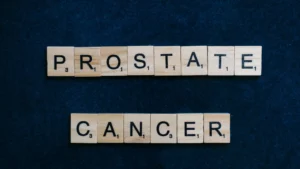Is Prostate Cancer Genetic or Not?
Prostate cancer is one of the most common types of cancer among men globally. Understanding its causes and risk factors can play a crucial role in early detection and prevention. While there is no definitive answer to whether prostate cancer is solely genetic or not, research suggests that both genetic factors and other risk factors contribute to its development. This article aims to explore the relationship between genetics and prostate cancer, along with other influential factors.

Prevalence
Prostate cancer affects a large number of men worldwide, making it a significant health concern. According to the American Cancer Society, prostate cancer is the second most common cancer found among men, with approximately one in eight men being diagnosed in their lifetime. While the exact cause of this prevalence remains unknown, studies indicate that ethnic background may influence the occurrence of prostate cancer, with African-American men having a higher risk compared to Caucasian men.
Genes
Genetic factors can play a role in increasing the likelihood of developing prostate cancer. Studies have identified certain gene mutations that are associated with an increased risk of prostate cancer. BRCA1 and BRCA2, known as breast cancer genes, are not only linked to breast and ovarian cancer in women but also to an increased risk of prostate cancer in men. Additionally, studies have found single nucleotide polymorphisms (SNPs) in specific genes that can also contribute to prostate cancer risk.
Other Risk Factors
While genetic factors can predispose individuals to prostate cancer, it is essential to recognize the influence of other risk factors as well. Age is considered the most significant risk factor, as the chances of developing prostate cancer increase with age. Obesity, poor diet, lack of physical activity, smoking, and exposure to certain environmental toxins are also potential contributors. Furthermore, a family history of prostate cancer, even in the absence of known gene mutations, can increase one’s risk of developing the disease.
Prevention
While it may not be possible to prevent prostate cancer entirely, certain lifestyle modifications can significantly reduce the risk. Regular exercise, maintaining a healthy weight, and consuming a balanced diet rich in fruits and vegetables can help lower the risk of developing prostate cancer. Additionally, getting regular screenings and discussing family history with healthcare professionals can aid in early detection and timely intervention.
FAQ
- Is prostate cancer solely genetic? – Prostate cancer is not solely genetic, but genetic factors can contribute to an increased risk.
- What genes are associated with prostate cancer? – Mutations in BRCA1, BRCA2, and certain SNPs have been linked to an increased risk of prostate cancer.
- Are there any non-genetic risk factors for prostate cancer? – Yes, factors such as age, obesity, poor diet, lack of exercise, smoking, and family history can also increase the risk of developing prostate cancer.
- Can prostate cancer be prevented? - While prevention may not be guaranteed, adopting a healthy lifestyle and undergoing regular screenings can help reduce the risk and aid in early detection.
Summary
In conclusion, prostate cancer is influenced by a combination of genetic and non-genetic factors. Genetic mutations, particularly in genes like BRCA1 and BRCA2, can contribute to an increased risk of prostate cancer. However, other considerations such as age, lifestyle choices, and family history must also be taken into account. By understanding the various risk factors and adopting a proactive approach to health, individuals can potentially reduce their risk of developing prostate cancer or detect it at an early, more treatable stage.